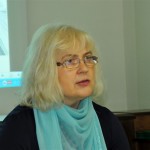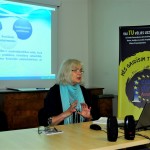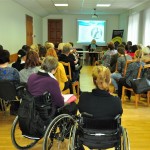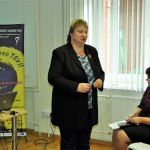Europe Direct in Eastern Latgale held a seminar on social entrepreneurship
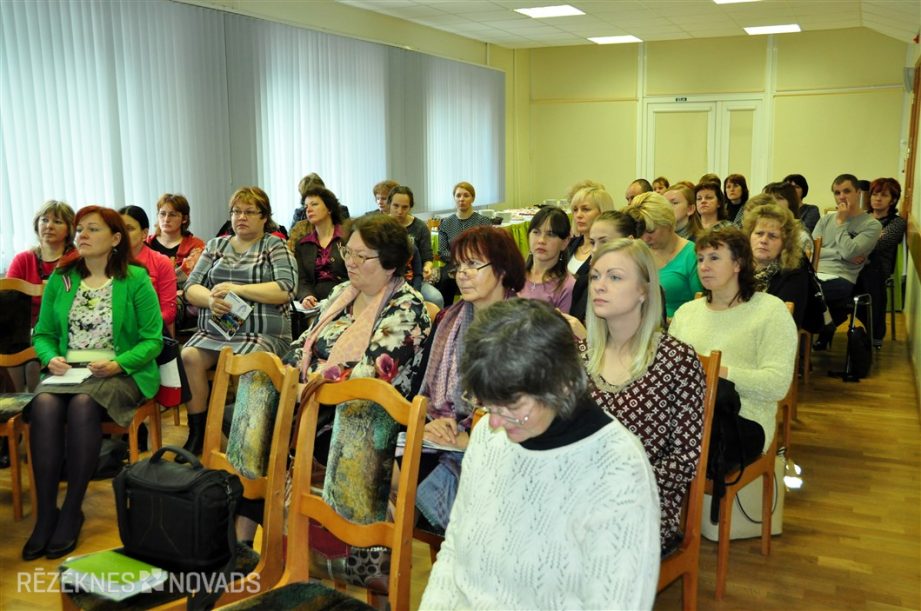
On 13 November, the municipality of Rezekne took place in the municipality Europe Direct seminar on social entrepreneurship organised in Eastern Latgale of the Information Centre. During the seminar, Ilona Seņkova, head of the Ludza Disabled Society, talked about the origin of social entrepreneurship, the most outstanding examples of social entrepreneurship in the European Union countries and Latvia, as well as the difficulties and challenges faced by social entrepreneurship beginners in Latvia.
“Is a business world and is a charity world. Why would we not be able to connect these world to generate revenue and solve social problems? – Mr Ilona Seņkova, head of the Ludza Disabled Society, began with the idea of social entrepreneurship in the Mohammed Junus Junus, stressing that in the mid-1980 s, the priority of the type of business created in Italy is to address societal or environmental problems, while ensuring the financial existence and sustainability of the company.
The wider recognition of social entrepreneurship was achieved in the 1990 s and there are many social enterprises in Europe that we can learn from. “For example, in London, a large part of the homeless person is not stretched out but raised by selling the local newspaper“ the Big issue ”(“ big edition ”), as the social entrepreneurs who established the newspaper decided that they would be invited to work as sellers only by homeless people, thus allowing them to control their lives and re-integrate into society. The first copies of the newspapers are sold for sale by the publisher, but they must be purchased for the next time, then sold at a margin of approximately EUR 1,70.“ The founders of the company say that every week around them is around a hundred homeless salesmen, ”Ilona Seņkov said.
A successful example of social entrepreneurship can also be found in neighbors, Lithuania's capital Vilnius, where the salad Bars “Mano guru” is active (“my guru”). “Almost 70 percent of employees have previously been dependent on drugs. Engaging in entrepreneurship has helped these people start a new life because, while working for half a year“ Mano guru ”, they learn a cook, a waiter and a bartender profession, and that company promotes healthy lifestyles and breaks stereotypes about people with dependencies.”
Also in Latvia there are several examples of social entrepreneurship - “Momma”, in which young mothers create high-quality knitted shawls, “Hop”, where bicycles are adapted to people with reduced mobility, “Lude”, in which people of pre-retirement and retirement age are doing rag dances as well as other companies.
In Latgale there is currently one officially registered social enterprise - “Sinai Vita” in Ludza, where people with disabilities, young mothers and pre-retirement unemployed have the opportunity to participate in the production of high-quality knitted products. “Sinavita” is said to be all possible - from shawls and stockings to poncho. The company's founder Ilona Seņkova says that despite the social and societal objective of Sinai Vita, it is not easy for the company to: “it is like a vicious circle of problems - on the one hand it is difficult to realise the production when the cheap Chinese product can be bought in large quantities, and because of the nature of the company it is not possible to produce competitive volumes, because people with special needs or young mothers who depend on the needs of the children cannot say“ produce more! ”or“ come within time! ”At the same time, there are often problems with finding workforce because very many people don't want to earn and always find a reason not to work.“ Ilona Seņkova says that the work is also not helped by the fact that the laws and regulations are constantly changing: “all time must live in tension, whether the requirements of the law have been fulfilled and whether you have missed anything.” However, Sinai Vita continues to work and welcomes each example when people with disabilities acquire new skills and remain economically independent.
“Social entrepreneurship subject is currently very topical for people with functional or mental disabilities to participate in the labour market,” said Silvija Strankale, head of the social service of Rezekne. “As a local government, we must take active steps so that such a way of business develops in the Rēzekne municipality and the best examples of Latvian municipalities and other countries inspire our side to seek ways of encouraging people of socially sensitive groups to launch social entrepreneurship.”
Madara Laksa,
Europe Direct East Latgale assistant assistant
